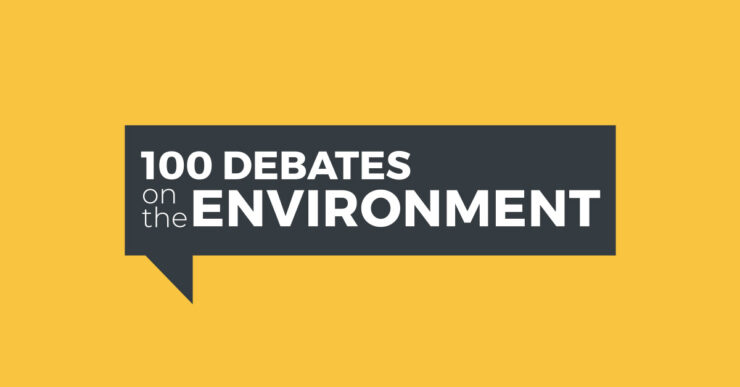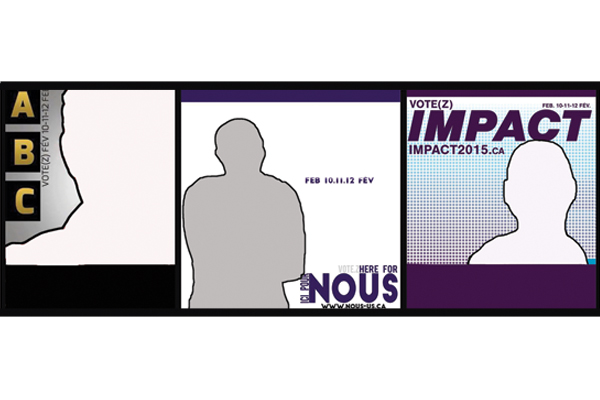Stephanie Mercier says she understands her communities’ needs through struggles with student debt, work as a nurse
This interview is part of our series of articles profiling the Ottawa-Vanier candidates in the upcoming federal election on Oct. 21. Each candidate was asked the same set of questions. Answers have been edited for length and clarity.
Stephanie Mercier is a law student at the University of Ottawa. She says her background in nursing helped her gain work experience in hospitals across Ottawa as well as participate in the establishment and operation of the city’s first supervised injection site.
The Fulcrum: What is something you want your voters to know about you?
Stephanie Mercier: I want people to know that I am empathetic, especially as a nurse, and that I will listen if they come and talk to me.
F: How do our background and past experiences make you qualified to be an MP?
SM: I’ve been a nurse for three years. I’ve been working in mental health and forensic psychiatry, so I saw how social inequities play a big role in the way people will end up in the community. With mental health problems, there are usually people who are marginalized and put aside from society, and they have very limited resources. We don’t take good care of them in our community. Seeing them come into the hospital ward and then go back to the community just because they don’t have the resources and they don’t have pharmacare insurance that will cover medication, they don’t have proper housing or food security, they always come back. Seeing how it’s a complete cycle kind of makes me question why are we working here if we’re not doing something. I feel like I will fight for it a lot more than most people because I know it’s important.
I’ve also been a varsity athlete. I’ve played for both the women’s hockey and rugby program at the U of O, so I’m a team player and I’m very coachable. I learn through the process and I tend to not make the same mistake twice. I know that everything I do is for my team, and my team is not only my campaign team, my team is also my community.
I’m also a law student. Law school has made me realize how the system is built so the deck is really stacked for people who have been dealt a good hand from birth. Some people, just because of the colour of their skin, just because of where they were born, they’re at an advantage and our system has been built so that it stays that way, so people born may be at a disadvantage. The system is built to keep them there. I’m seeing it at the hospital as well, so it makes me want to work against that so we can take care of everyone. Not just the ones who were dealt a good hand.
F: Why did you choose to run under your party?
SM: The NDP has been in line with my own values for a long time. My parents were NDP voters. I’ve been, ever since I could vote. I’m a queer person. I’m a young woman. I come from a small town of working people. My mom’s a social worker. My dad’s a middle school teacher. My sister’s a teacher. My brother’s a nurse. I’ve been a nurse. So, the NDP is very in line with my values. I believe in inclusion. I think discrimination, homophobia and racism have no place in Canada and I feel like, especially with the way Jagmeet Singh responded to the latest issue with Justin Trudeau, (referring to the images of the Liberal Leader wearing blackface and brownface), I feel like we’re the only party who’s actually for the people and trying to throw racism away and help people move forward.
The other thing is, we’re for the working people. We’re for unions. We want people to have a good job and feel safe and feel like they can afford life. As a student, I’ve had a decent amount of student debt so I know how it feels to stress with that. I understand how big of a burden that can be. For people like me who have made a choice, it’s also a big move. Some people won’t make that choice because money’s too big of a deal and they can’t afford to go back to school. So the NDP wants to get rid of student debt.
I’ve lived on campus for quite a while. I know how housing is not cheap and I have friends that can’t afford rent so they move away or some people who have had to choose between not paying rent or buying Kraft Dinner at the end of the month and I feel like that’s not fair. I feel like the NDP is for everyone. They’re more in line with progressing instead of going backwards, and that’s the only way I want to go.
F: What are your plans for improving this riding specifically by use of federal powers?
SM: Regarding housing, with federal powers that means we want to create 500,000 units of affordable homes in the next 10 years, building half of those in the next five, which means a $5 billion investment going straight to that. So I think that will help a lot with affordable housing in Ottawa-Vanier.
The other thing is with food security. We want to work with the municipalities and with the provincial government to make sure that we have a national food strategy for the people.
I think it’s important to say that student debt is a big issue and that the NDP wants to work with the province to move to a public post-secondary education system, as well as taking the interest off of student loans and instead move to grants instead of loans.
We also want pharmacare. In Ottawa-Vanier in particular, I was a volunteer for the OPO supervised injection site at Cumberland Street and St. Patrick Street, we were the first supervised injection site in Ottawa which gave way for more sites. We want to move toward drug decriminalization which means, say, one person in prison per year costs $100,000. If we decriminalize a drug like Portugal did, where all of the funds that it would take to incarcerate an individual are toward rehab. We actually give them a chance and we don’t punish them for having an illness.
The NDP believes in supervised injection sites and harm reduction strategies. Universal pharmacare, that will cover medication for older people in Vanier that need it, but also for the other people who don’t have insurance that covers medication. If we can pay that $5 bill a day and keep people out of the hospital which costs $1,500 just for the bed a day, I think we’re making progress. That universal pharmacare program also covers mental health support. In Ottawa-Vanier we talk about the opioid crisis. I think if we can give more resources to people, if we can connect them to resources and if we can make sure that those are affordable or free it will actually help people instead of keeping people at the same place that they are at. Those are ways where we can help Ottawa-Vanier specifically.
We want to fight the climate crisis but we also want to incorporate 300,000 jobs. In Ottawa-Vanier people need jobs, so that’s also a good thing we can do for the community.
F: How will your plans address issues that affect young people and students?
SM: I’ve talked about student debt. I’ve talked about affordable housing. I think everything that I’ve talked about, pharmacare as well, are issues that will affect our future generation. When you get out of school, a lot of people buy a house when they’re a lot older or they just keep renting because they can’t afford it. So we want to introduce a 30-year mortgage term to the CMHC program which would mean that people could buy a house and then have a longer time to pay their mortgage, but they would also have smaller payments at the end of the month, which means that it would be easier to make ends meet.
I think the climate crisis is a big one. I think having a platform that fights the climate crisis like we actually want to win is important because we’ll be the ones left with this planet. We’re going to be the ones dealing with all of the problems that our generation and the generations before us have created by pollution, by big corporations, by fossil fuels. If we start now, and it’s not too late, if we listen to experts now, I think we can have a better future and a planet that doesn’t kill us.
F: Any final statements?
SM: People need to vote. I’ve heard a lot, going door to door, that people just don’t want to vote because they don’t think it’s going to do anything or they’ve just given up on politics altogether. Voting is your right. It’s you’re way to advocate. It’s your political statement. Not voting is surrendering. So, go vote on Oct. 21, and hopefully, it’s orange.
Read More:
- Ottawa-Vanier Liberal candidate looking for reelection
- Ottawa-Vanier Green Party candidate looks to reduce poverty, homelessness
- Ottawa-Vanier Communist Party candidate looks to fight poverty, tax the rich
- Ottawa-Vanier independent candidate wants to see change in voting system
- Ottawa-Vanier PPC candidate looks to confront opioid crisis
The Fulcrum will be publishing other Q&A’s from other candidates in the Ottawa-Vanier federal election. The Fulcrum reached out to the Conservative Party of Canada candidate, Joel Bernard, and the Marxist-Leninist Party of Canada candidate, Christian Legeais, but neither responded to requests for an interview.





